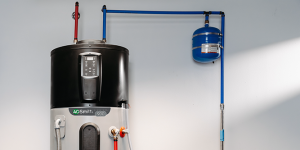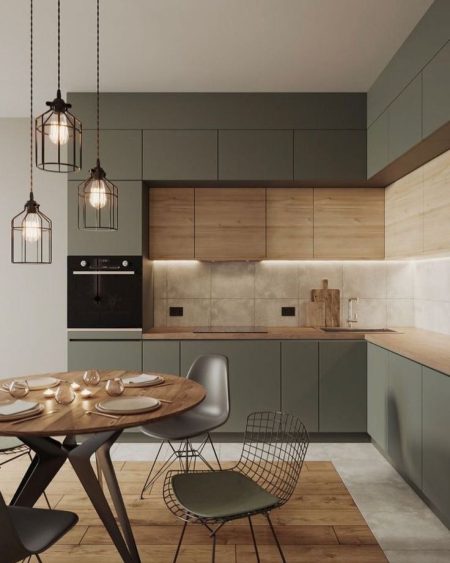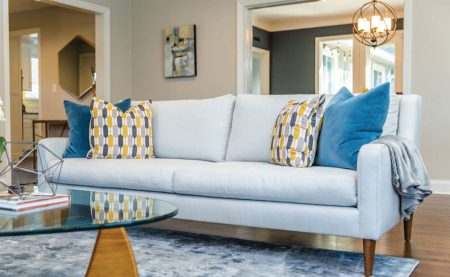Factors To Consider When Buying Solar Panels
In general, we recommend you look for solar panels that offer high efficiency and durability. Here are the main factors to consider before making a final solar purchase:
Type of Solar Panel
You can classify solar panels based on the semiconductor material used in their photovoltaic cells. The three main types are:
- Monocrystalline: The most efficient solar cells, but also the most expensive
- Polycrystalline: Offers intermediate efficiency at a lower cost than monocrystalline cells
- Thin-film: Low-cost and low-efficiency panels that feature lightweight and flexible options
Monocrystalline and polycrystalline panels are recommended for rooftop solar installations since they generate more electricity per square foot. Thin-film panels are better suited for recreational vehicles and other applications that require a lightweight design.
Energy Conversion Efficiency
The most efficient solar panels can convert over 20% of the sun’s energy into electrical power. SunPower and Canadian Solar have some of the highest efficiency ratings in the industry, offering PV modules with up to 22.8% efficiency.
Since solar PV panels generate direct current (DC) electricity, you need an inverter to convert their output into the alternating current (AC) electricity that powers your home. Most installers wire panels into string circuits with a common inverter, while others use microinverters on all panels. You should also make sure the inverter has a high DC-to-AC conversion efficiency.
Solar Panel Warranty
Residential solar systems offer a payback period of less than six years under favorable conditions while having a service life of nearly three decades. The best solar panels have a 25-year product warranty, guaranteeing your equipment will properly function for decades. Many reputable installers also extend warranties to cover panel performance and system installation.
Where To Purchase Solar Panels
You can purchase solar panels from local retailers or online stores. However, we recommend working with a qualified solar installer to design and source your solar panel system. Professional installation will ensure you have enough panels to meet your home’s energy needs.
Solar Installers
The simplest way to go solar is by purchasing a complete installation. A solar company will sell you the PV modules and all other system components with an offer that includes installation and permitting. Many solar companies also have a workmanship warranty to cover installation in addition to equipment warranties for solar inverters and batteries.
Local Retailers and Online Stores
You can also purchase solar panels directly from local retailers and online stores. But since you are only getting solar equipment, you will have to look for a professional installer to set up your panels.
A direct purchase is a good option if you are looking for solar kits specifically designed for DIY projects. But if you want a rooftop solar system, we recommend contacting a professional installer. Attempting a solar panel installation on your own can be very dangerous and could void your solar panel or roof warranty.
Evaluating Solar Panel Sellers
Not all solar manufacturers and installers offer the same equipment quality and warranty coverage. We recommend doing some research before choosing a solar panel brand and installer. You can review solar companies based on the quality of equipment offered, available services, warranties and online customer reviews — and be on the lookout for solar industry scams.
You can expect to save thousands of dollars in electricity bills over the lifetime of your system by opting for high-quality solar modules installed by professionals.
Comparing Pricing and Financing Options
Based on our research, the average cost of a home solar system is $2.85 per watt. You could expect to pay around $14,250 for a 5 kilowatts (kW) solar system or $28,500 for a 10 kW system, before incentives like the 30% federal tax credit.
There are four main ways to pay for a solar power system:
- Cash purchase: Paying for solar panels in cash offers the highest savings in the long run, but you must cover the full system price upfront.
- Solar loan: A solar loan allows you to purchase panels with money loaned from a bank, which includes a down payment and interest rate. However, some solar loans include $0 down and low rates.
- Solar lease: With a lease, your solar provider retains ownership in exchange for a monthly fee you pay to use the panels. The provider is responsible for maintenance, but ongoing payments may consume a large portion of your energy savings.
- Power purchase agreement (PPA): Similar to a lease, a PPA charges you for the amount of electricity a system generates instead of a monthly fee. You do not own the system with a PPA and long-term savings are lower than those achieved with a cash purchase or loan.
As a solar panel owner, you can also claim incentives such as the federal solar tax credit, which offers a tax credit worth 30% of your total solar system costs. You can claim these incentives when you purchase a solar array in cash or with a loan, but not under rental terms such as a lease or PPA.
The Bottom Line
While you can buy portable solar panels from local retailers or online stores, we recommend working with a professional solar company to purchase and install residential solar panels. An installer can help you select the best panels to meet your home’s energy consumption and offer warranties to protect your system for decades.
You may run into a few hurdles buy trying to purchase and install solar panels on your own:
- It may be harder to determine how many solar panels you need to meet your home’s energy needs.
- The local utility company will not let you connect your panels to the electricity grid or participate in net metering programs.
- The solar panel manufacturer may void the warranty, and you can also void your roof warranty by attempting a DIY solar installation.
- Your local municipality may decline your construction permit.
There are many factors to consider when shopping for solar panels, including quality and efficiency, cost and brand. We suggest getting quotes from reputable solar installers to best determine the right solar panels for your home.
Leonardo David is an electromechanical engineer, MBA, energy consultant and technical writer. His energy-efficiency and solar consulting experience covers sectors including banking, textile manufacturing, plastics processing, pharmaceutics, education, food processing, real estate and retail. He has also been writing articles about energy and engineering topics since 2015.
Tori Addison is an editor who has worked in the digital marketing industry for over five years. Her experience includes communications and marketing work in the nonprofit, governmental and academic sectors. A journalist by trade, she started her career covering politics and news in New York’s Hudson Valley. Her work included coverage of local and state budgets, federal financial regulations and health care legislation.
Read the full article here














